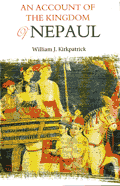This is an extraordinary work on the political system in transition in Nepal in the aftermath of the revolution of 1950-51, the origin, role and position of the elites, whether traditional or modernists, and Nepal’s strategic, if uneasy, position in the context of its giant neighbours, India and China.
The method of inquiry the authors have employed in delineating political events and in describing political personalities is the case-study approach, focusing intensively on continuous trends and patterns emerging over a period of time. There is no theorization. The authors have pointed out that “the basic objective of the study is to describe, understand, and explain, in all its many and varied forms, the course of modernization in an essentially backward society.” They think that “this study may have some value for the political elites in Nepal, who are, indeed the ultimate authors of the processes and events we have investigated.”
The book has drawn some clear conclusions on the process of nation building accomplished or unaccomplished so far. They point out very clearly that that the progress made after 1951 is remarkable in establishing what they emphasize as prerequisite for the modernization of Nepal – i. e. the development of a new sense of nationhood.

